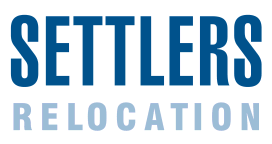Hungarian banks offer a wide range of products, including multi-currency accounts, competitive savings options, and user-friendly digital banking solutions. Whether you’re moving to Hungary or already living there, understanding how to navigate the banking system is crucial for a seamless experience.
Contents
Opening a Bank Account in Hungary as a foreigner
The first step in banking in Hungary is to open an account. Some banks may allow you to start the application process online, but you will likely need to visit a branch in person to complete the process. The fully online account opening is currently only available for Hungarian citizens.
Before the account is opened, the bank’s back office departments run some security check procedures, which may take some time. Once they approved, the account opening can be finalised.
The specific requirements may vary by bank, but you will typically need the following documents to open a bank account in Hungary:
- Valid passport
- Residence permit or entry visa (depends on the bank)
- Proof of address
- Hungarian tax number (not always required, but it’s frequently asked)
- Proof of employment, student status
To activate your online/mobile access to your account, a mobile phone number is needed.
Settlers Relocation Kft. can assist expats with a full service from opening a bank account to closing it.
Banking system in Hungary
In the financial products market in Hungary, the role of traditional banks is dominant. Numerous banks operate in Hungary, including both domestic and foreign companies. Banks are offering account management services, financial advisory services and in some cases, insurance products.
The Hungarian National Bank is the supervisor of the Hungarian banking system activities. It does not provide commercial banking services.
Bank account management in Hungary
In Hungary, the primary type of account used for making payments is the current/checking account, which is used for the everyday management of cashless payments. In banks, customers also have access to credit accounts, deposit accounts, savings and investment accounts.
Account management and other basic banking operations (money transfer, cash withdrawal etc.) all come with costs for customers; however, these can be optimized by selecting the appropriate account package.
To select the appropriate account package, banks typically consider the following factors:
- Regular (average) monthly credits
- Number of monthly transactions
- Cash usage
- Use of online platforms and mobile applications
Accounts can be held in either Hungarian Forints or foreign currencies. In Hungary, after the Forint account, the most common accounts are EUR, USD, GBP, and CHF.
Internet banking in Hungary is well-developed. As part of the service packages, all banks offer electronic banking services, including online and mobile application account management options. These platforms are mostly available in English as well. Transfers can be made online, monthly statements can be checked, and in some cases, bank employees can be contacted through the application if needed.
The identification numbers of Hungarian bank accounts consist of 16 or 24 digits, for domestic account transactions it is enough to enter this bank account number. For international transactions, the IBAN bank account number is used, which is generated from the domestic bank account number.
The SWIFT code (or BIC) identifies banks globally, ensuring money is sent to the correct institution during international transfers. Both IBAN and SWIFT are essential for efficient international transactions.
Hungarian banks also offer direct group collection (or direct debit) services, which provide a convenient way to automatically pay utility bills and other regular expenses.
The security of online purchases is ensured by internet-only cards or web cards and sub-accounts, so called separated card account or web account, linked to the main account.
Card payment in Hungary

Card payments are widely accepted in Hungary, and legislation requires most shops and service providers to offer electronic payment options to their customers. However, there are exceptions to this rule, and sometimes technical issues can occur during payment, so it is advisable to always carry some cash as well.
Shops and restaurants typically indicate at their entrances which types of bank cards they accept, usually with stickers. The most widely accepted card types are VISA and MasterCard, but many places also accept other internationally recognized cards (e.g., American Express), especially in Budapest.
Most card terminals now support contactless payments, which can be made using a card, mobile phone, or smartwatch.
Credit cards
Credit card use is less common in Hungary than debit cards. Credit cards are accepted for purchases wherever card payments are possible.
Credit cards are more complicated to apply for than debit cards, as banks check the creditworthiness of the customer before issuing a credit card. Therefore for foreign customers, credit cards are only available with restrictions.
In most cases, banks will only issue credit cards to EEA citizens and foreigners with settled status, and only if the customer has been living in Hungary for at least a few months. In addition, there may be a restriction that the customer must have a regular account for a few months before the credit card is issued.
Cash withdrawal and payment
Banks have their own cash machines (ATM), which are easily distinguishable from each other. Every bank branch has an ATM, which is usually accessible beyond regular banking hours. Many banks also place ATMs in busy public areas and shopping malls.
There are many cash machines in Budapest and larger rural towns. In smaller cities, not all banks have branches, and there are villages where is no cash withdrawal option at all. In map applications, search for the keywords “bank” or “ATM” to find the nearest ATMs.
The cheapest way to withdraw cash is always using your own bank’s ATM.
Bank independent service providers (e.g. Euronet) also operate ATMs in Hungary, but their services may be more expensive than Hungarian banks.
Cash payments are accepted everywhere in Hungarian Forint, but some shops and service providers also accept Euros. In the second case, the exchange rate will be indicated in the shop.
Comparing Banks: Fees, Interest Rates, and Services
It’s essential for expatriates to compare banks in Hungary to find the best fit for their financial needs. Factors to consider transaction fees, especially for international transfers, interest rates on savings accounts, and the availability of premium banking services.
Bank comparison (packages, loans, etc.): https://bankmonitor.hu/
MNB Bank Account Selection Program: https://bankszamlavalaszto.mnb.hu/kalkulator
List of larger banks in Hungary
- Erste Bank: https://www.erstebank.hu/hu/ebh-nyito
- Unicredit Bank: https://www.unicreditbank.hu/en/individual.html
- OTP Bank: https://www.otpbank.hu/portal/en/Retail
- Raiffeisen Bank: https://www.raiffeisen.hu/web/english
- K&H Bank: https://www.kh.hu/web/eng
- CIB Bank: https://www.cib.hu/en/Maganszemelyek
- MBH Bank: https://www.mbhbank.com/
Banking in Hungary: Online banks
Revolut, Wise and similar online banking services can be conveniently used in Hungary, just as it is in many other countries around the world. However, please note if you are planning to work in Hungary, employers may not accept online bank accounts for salary transfers.

